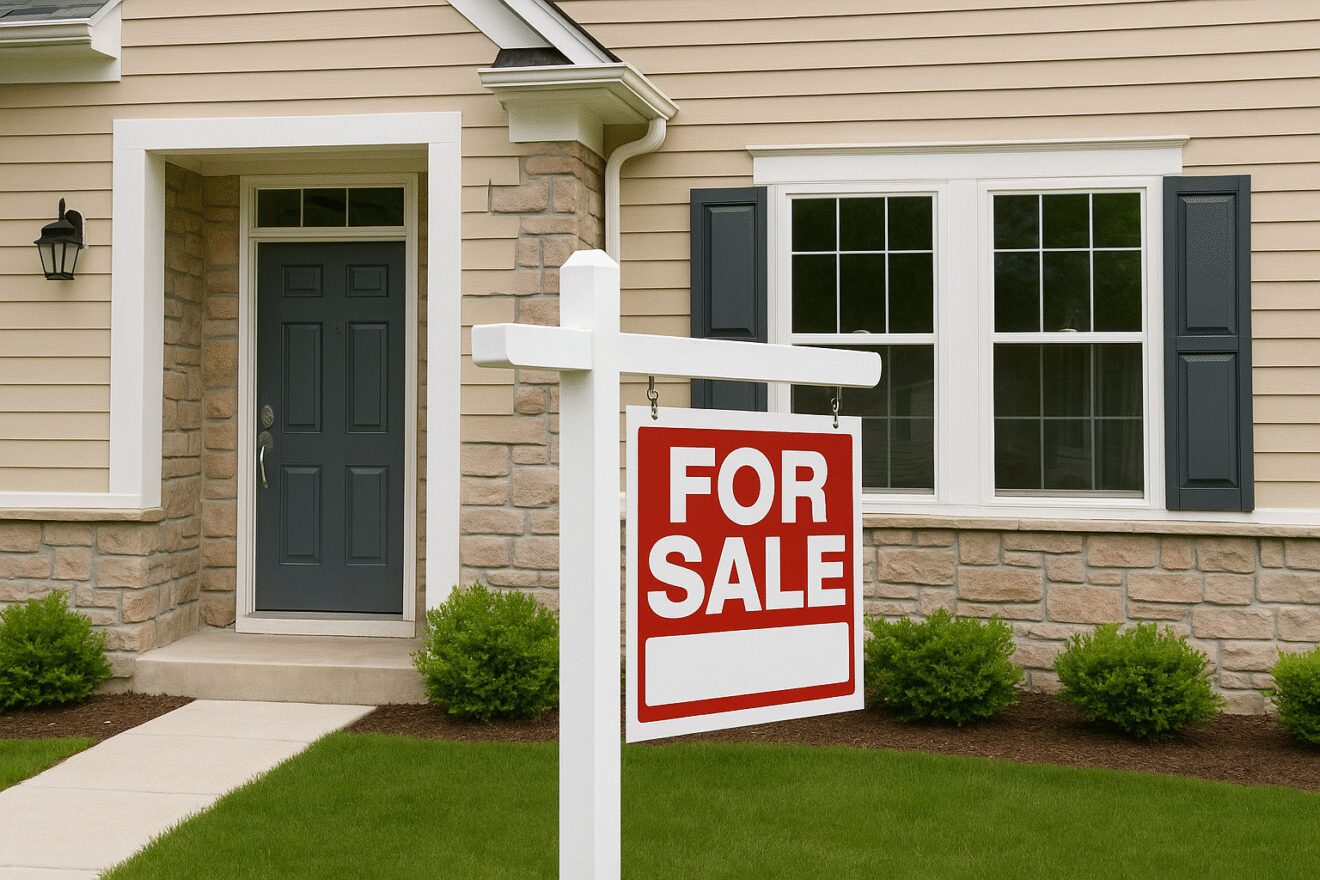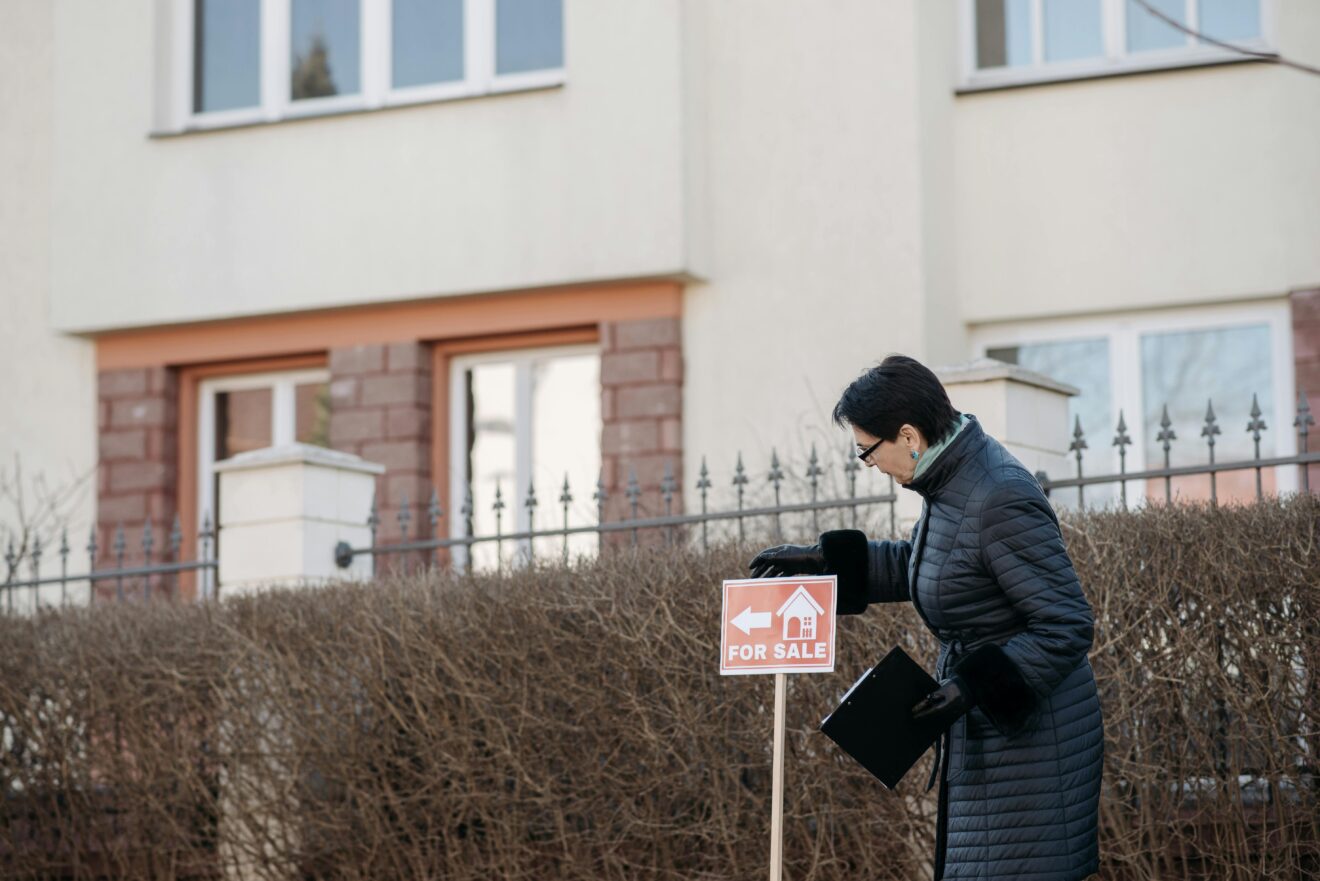You’ve cleaned every corner, touched up the paint, planted flowers by the front door, and listed your home. You expected showings, interest, and maybe even multiple buyers competing with offers. Instead, weeks have passed. The listing is still active. The open houses have gone quiet. And you’re starting to ask yourself that painful question: why hasn’t my home sold yet—and what can I do about it? There are various factors that can contribute to why a home isn’t selling, including market conditions, pricing, and timing.
In this blog post, we’ll share practical tips and strategies to help homeowners understand why their home isn’t selling and what steps they can take to improve their chances of a successful sale.
1. Pricing Problems: When the Asking Price Isn’t Right
One of the most common reasons a home sits on the market longer than expected is price. In today’s real estate market, buyers have access to loads of data—recently sold homes, listing history, and market value comparables. They know when a price is out of step. Current home prices, influenced by market trends, play a major role in how buyers evaluate your property and make pricing decisions.
Setting the right listing price is part science, part art. Many homeowners overprice their homes based on emotional value or what a neighbor sold for six months ago. Ultimately, what a buyer thinks the home is worth is what determines the sale price. But markets change quickly. Even a small price discrepancy can steer most buyers away.
What to do: Ask your real estate agent to prepare a Comparative Market Analysis (CMA). Look at similar properties, recent sales, and what’s currently listed. If you’re overpriced, a price reduction—even a modest one—can make a big difference.
2. Weak Marketing Strategy: It’s Not Just a Sign on the Lawn
A surprising number of homes fail to sell because the marketing strategy lacks reach or creativity. In a slow market or even an average one, simply uploading your listing to the MLS isn’t enough. You need a marketing-savvy agent who knows how to attract buyers where they are—online. Common house selling challenges include limited exposure, ineffective marketing, and not addressing factors like pricing or location that can impact how quickly a property sells.
Blurry or dark listing photos, poorly written descriptions, or little effort in promoting the home can hurt your chances. Most buyers start their home search online, and if your listing doesn’t pop, you may never make it onto their radar.
What to do: Work with a real estate agent who invests in hiring a professional photographer, drone footage, virtual tours, and strong listing descriptions. Ask how your home is being promoted—email marketing, social media, open houses, and third-party real estate platforms. If your agent can’t answer, it may be time to switch real estate agents.
3. Poor Presentation: Buyers Buy With Their Eyes
You might love your quirky wallpaper, but prospective buyers may not. Home buyers often make up their minds within minutes of entering a home—or even just browsing photos. Improving your home’s curb appeal is a crucial first step in attracting buyers. A well-maintained exterior, including landscaping and exterior presentation, sets a positive first impression that encourages more showings and increases the likelihood of selling. If your home feels cluttered, dark, outdated, or too personalized, it may not be attracting the right buyer.
What to do: Home staging can work wonders. A deep clean, neutral décor, and smart furniture placement can create inviting spaces. Boost your home’s curb appeal too—a tidy lawn, fresh mulch, and a clean front door can make all the difference.
Even small upgrades like changing dated light fixtures, fixing a dripping faucet, letting in more natural light, or adding fresh paint can change how buyers feel. Ask your agent or a home staging professional to walk through your house and offer a fresh perspective.
4. Market Conditions and Buyer Psychology
Sometimes, it’s not you—it’s the market. If mortgage rates have recently risen, buyer demand may dip. The real estate market reacts to broader economic conditions. A slow market can mean fewer buyers and longer listing periods.
Still, homes that are priced right, marketed well, and presented beautifully do sell—even in tougher conditions. The trick is to understand what’s happening in your local market and adjust.
What to do: Look at what’s happening around you. How are similar properties performing? Talk to your agent about local trends—not just national headlines. In some cases, offer incentives like a flexible closing date or helping cover closing costs to make your property more appealing. Offering incentives can help attract many buyers, especially in a slow market, by reducing their costs and increasing interest in your listing.
5. The Impact of Location: What You Can—and Can’t—Control
When it comes to selling your home, location is one of the most powerful factors influencing your home’s market value and appeal to potential buyers. The real estate market is shaped by local trends—what’s happening in your neighborhood, school district, and even on your street can make a big difference in how quickly your home sells and at what price.
While you can’t pick up your house and move it to a more desirable spot, you can control how you present and market your property. A skilled real estate agent will help you develop a marketing strategy that highlights your home’s best features and positions it to attract buyers, even if your location presents unique challenges. For example, if your home is in a neighborhood with great schools, low crime rates, or easy access to amenities, make sure these are front and center in your listing description and marketing efforts. These factors can help your home stand out in a competitive housing market and may even allow you to sell quickly or for a higher price.
On the other hand, if your property is in an area with less curb appeal, higher crime rates, or fewer amenities, you may need to get creative. Offering incentives—like covering closing costs or providing a home warranty—can help attract more buyers. In some cases, alternative selling routes, such as selling to investors or exploring off-market opportunities, might be the best way to achieve a successful home sale.
Don’t underestimate the power of presentation, either. According to the National Association of Realtors, homes with strong curb appeal and a well-maintained exterior can sell for up to 10% more than similar properties. Investing in professional photography and home staging can make a big difference, helping your home shine online and in person, regardless of its location.
If you’ve had few showings or offers, sometimes a fresh perspective from a different agent can help you see new possibilities. A top real estate agent will know how to tailor your marketing strategy to your local market, ensuring your home reaches the right buyers. In a slow market, patience and flexibility are key—be open to feedback, consider offering incentives, and trust that the right buyers are out there.
Ultimately, while you can’t change your home’s location, you can control how it’s perceived in the real estate market. With the right approach and a dedicated agent by your side, you can navigate the home selling process and achieve your goals, no matter where your property is situated.
6. The Agent Factor: Is It Time for a Change?
Sometimes, despite your best efforts, you need to consider a different agent. The home selling process depends heavily on the skill, network, and motivation of your real estate agent. However, bad advice from an agent can negatively impact your decisions, sale price, and overall experience. As the seller, you have the decision-making power and responsibility to choose the right agent and strategy to achieve the best outcome. If communication is weak, marketing efforts are inconsistent, or they aren’t adjusting the strategy, it may be time to move on.
What to do: Interview a few different agents. Ask what they’d do differently, what they think of your current pricing, and how they would re-market the property. The right agent brings new ideas, better tools, and a fresh sense of momentum.
7. Alternative Selling Routes
If traditional listing methods aren’t working, consider alternative selling options. For example, some sellers explore off-market opportunities or sell directly to investors. If you’re struggling to sell your home, you might look into quick cash programs or guaranteed sale options as alternative ways to sell your home. These approaches might not bring the absolute top dollar, but they can be quicker and more certain.
What to do: Discuss all your options with your agent. Some investors will buy homes for cash, while others may be looking for rent-to-own properties. Your home may offer unique value that fits an investor’s portfolio—even if it hasn’t landed with typical buyers.
Related Blogs You Might Like:
- How Accurate Are Real Estate Headlines?
- Investing in Multi-Unit Residential Properties: Pros and Cons
Final Thoughts
If you’re asking yourself why your home hasn’t sold yet and what to do about it, know that you’re not alone—and that there are solutions. Whether it’s adjusting the asking price, rethinking your marketing strategy, or finding a real estate agent who sees things differently, small tweaks can create big results. Every property has a right buyer. Sometimes, it just takes a fresh approach to find them.
Need help selling your home? Let’s get it done right.
📞 416-498-3444
📧 jas@thebahiateam.com
🌐 www.bahiarealtygroupinc.com






